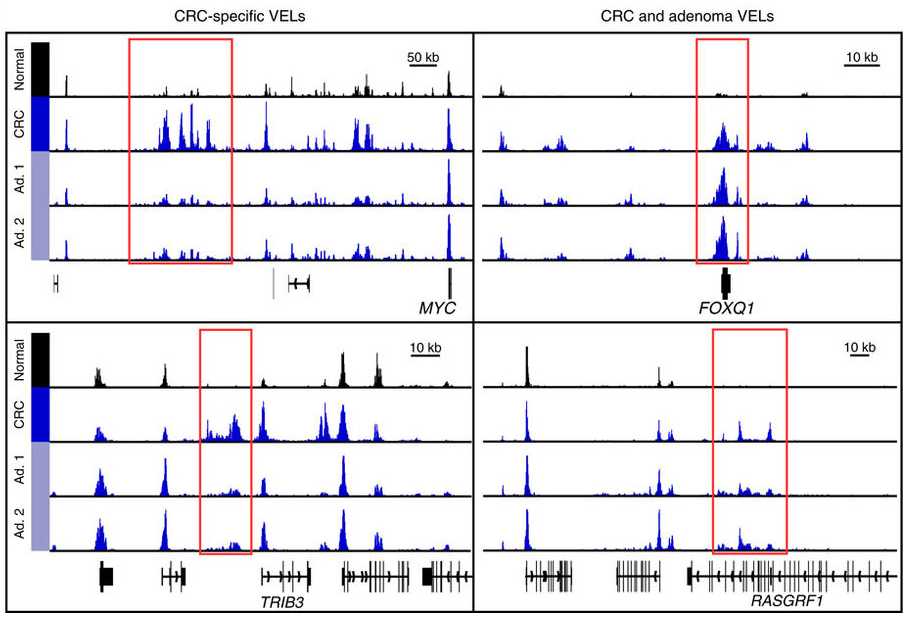Genetic mutations increase the risk of cancer, but other “enhancer” elements of genes also have an impact on the worsening of the disease. According to a recent article from Case Western Reserve University researchers published on Nature Communications, scientists found that changes in the DNA enhancer region of the oncogene affect the growth of colorectal cancer. Therefore, this finding can be used as a target for future drug research.
Enhancer elements are short DNA fragments that regulate the opening and closing of genes. This element is widespread throughout the genome and can combine with distant gene regions to form a complex 3D structure. This study found that the activity of the enhancer in the chromosome where the colorectal cancer gene is located is high, so the gene is more easily to be turned on.

Fig1. Normalized H3K27ac ChIP-seq tracks for two adenomas compared with CRC and normal colon H3K27ac
“Our research shows that the survival of colorectal cancer cells depends on enhancer regulation of oncogenes,” said the author of the article, Peter Scacheri, associate professor at Case Western Reserve University.
Scacheri and his group identified thousands of enhancer elements from colorectal cancer cell samples. By genetically modifying these elements, they found the previously actively expressed genes became inactive. Therefore, scientists speculated that by regulating enhancer elements may be able to turn off the expression of oncogenes, thereby inhibiting the deterioration of the tumor.
In this study, 42 colorectal cancer samples with different genetic backgrounds were tested. From these samples, scientists identified previously discovered cancer genes and also discovered areas other than oncogenes that could affect the occurrence of the disease.
Colorectal cancer is the second most fatal type of cancer in the United States, and the scientists found that the regulatory role of enhancer elements may serve as a target for the treatment of this disease.
Reference
Andrea J. Cohen et al, Hotspots of aberrant enhancer activity punctuate the colorectal cancer epigenome, Nature Communications (2017). DOI: 10.1038/ncomms14400